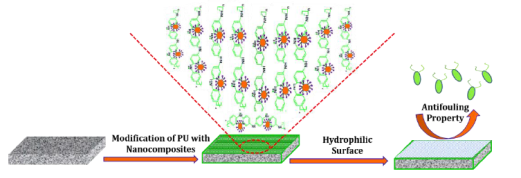
Vandana A Mooss
Savitribai Phule Pune University, India
Title: PANI-ZnO nanocomposites embedded polyurethane films for antifouling applications
Biography
Biography: Vandana A Mooss
Abstract
Biofouling arising due to the nonspecific protein adsorption is a persistent challenge for any submerged surface and has a detrimental impact on the marine eco-system. The ensuing biocorrosion is accountable for an annual economic damage to the tune of ~ 500 billion USD. Additionally, it also affects adversely on the fuel efficiency by lowering of the cruising speed which eventually lead to the increased emission of greenhouse gases and unanticipated catastrophe related to structural failures. Hence, the eradication or prevention of biofouling process in the maritime/naval industries is highly relevant and offers a direct influence on economic, environmental or social factors. Commercially, strategies include the usage of biocides which is a major threat to the flora and fauna of marine eco-system. In the present work, a passive strategy is attempted specifically to inhibit the biofilm formation which is one of the crucial steps in the biofouling without possessing any bactericidal effect. Novel polyaniline- ZnO nanocomposites have been synthesized using an anti-nutrient natural chelating acid to render superior surface and mechanical properties. The antifouling property of the nanocomposite embedded polyurethane surfaces have been systematically investigated against marine bacteria, Vibrio harveyi (Gram negative) and Bacillus licheniformis (Gram positive) both qualitatively and quantitatively. The desirable properties of these nanocomposites could further envisage their utility in long-term maritime and naval applications.


